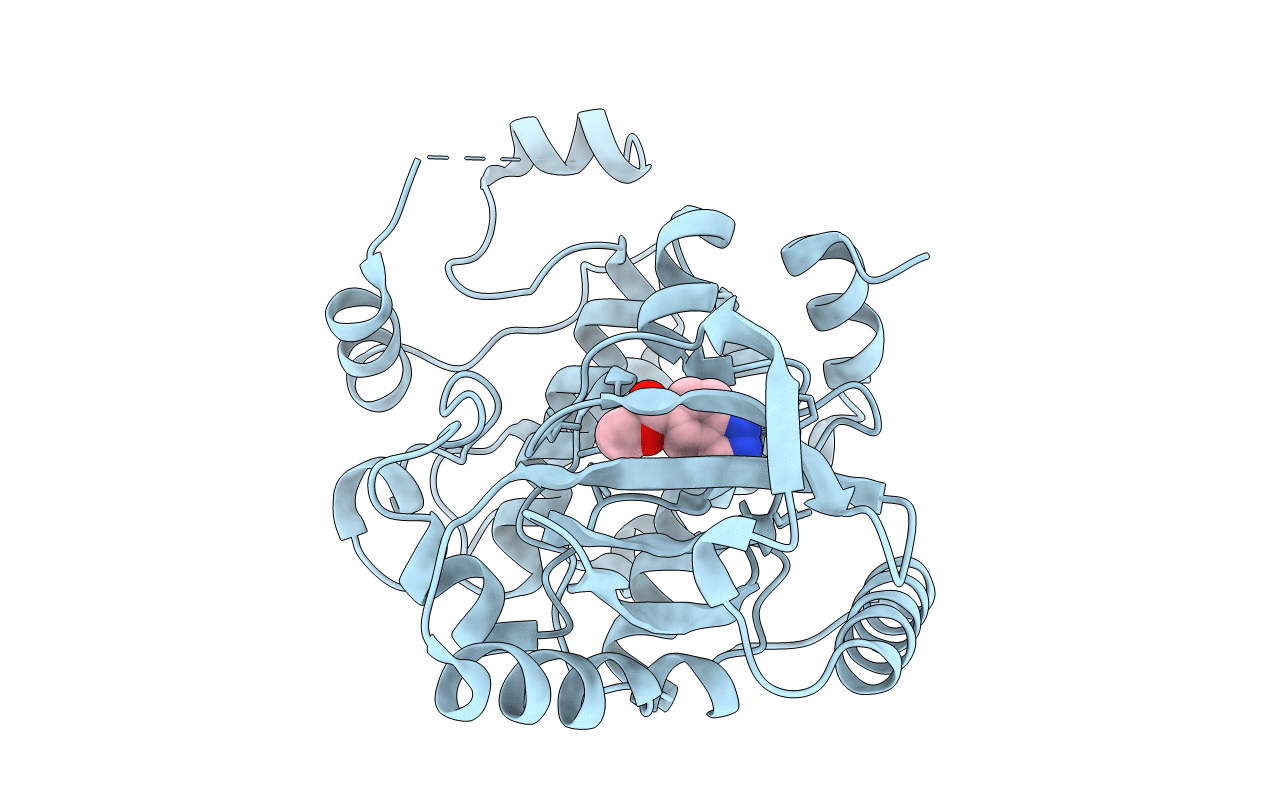
Deposition Date
2015-06-08
Release Date
2015-12-23
Last Version Date
2024-01-10
Entry Detail
PDB ID:
5BX0
Keywords:
Title:
An Automated Microscale Thermophoresis Screening Approach for Fragment-Based Lead Discovery
Biological Source:
Source Organism(s):
Homo sapiens (Taxon ID: 9606)
Expression System(s):
Method Details:
Experimental Method:
Resolution:
2.93 Å
R-Value Free:
0.25
R-Value Work:
0.19
R-Value Observed:
0.20
Space Group:
P 61 2 2


